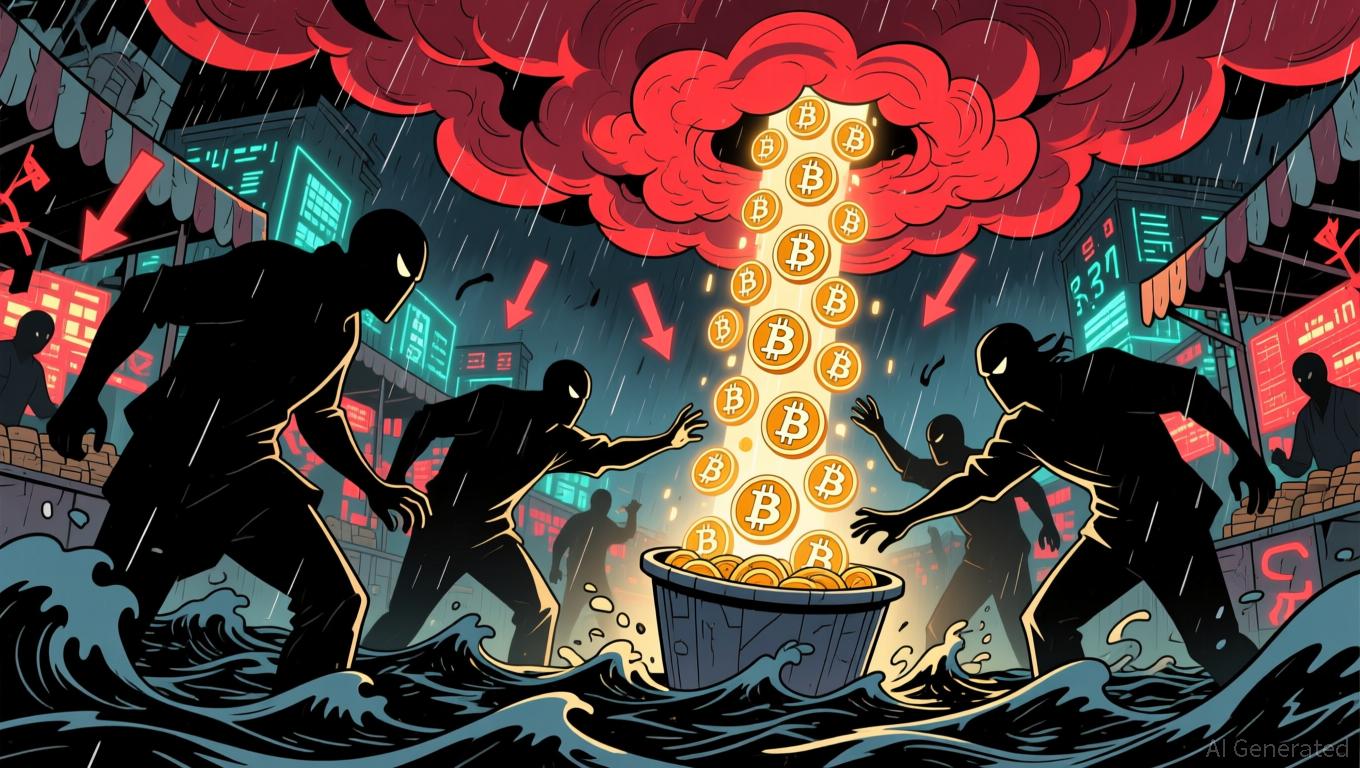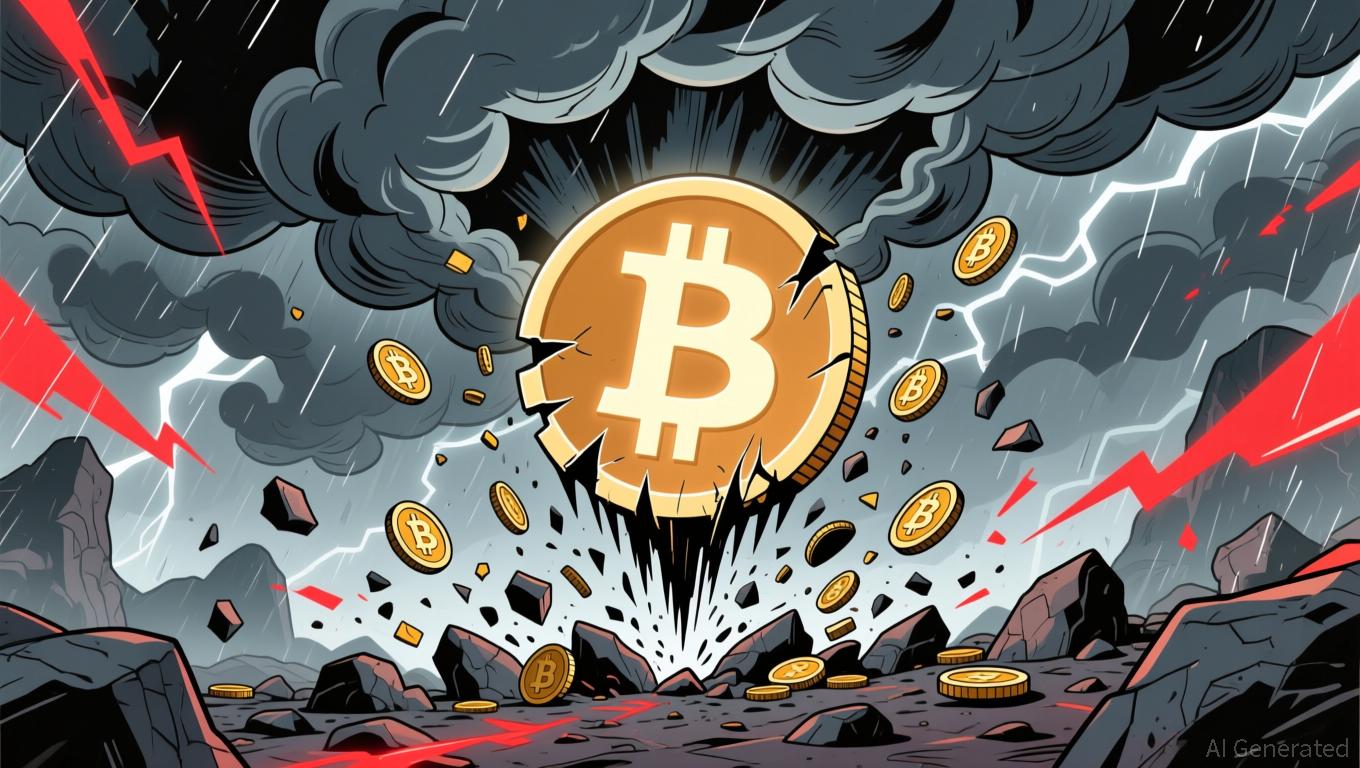Ethereum News Update: Navigating Privacy and Regulation: GTBS and Ethereum Transform Web3 Integration
- Sheikh Hamdan's GTBS Digital Ecosystem launches a unified Web3 platform integrating blockchain, AI, gaming, and DeFi via a Layer-1 blockchain with native GTBS coin. - Ethereum's privacy toolkit Kohaku bridges research and usability by modularizing private transactions, secure key management, and risk controls without requiring new infrastructure. - Both initiatives aim to boost institutional adoption through privacy-enabling features like auditable transactions and association lists, while balancing regu
The Office of His Highness Sheikh Hamdan Bin Ahmed Al Maktoum Holdings has revealed the official rollout of the GTBS Digital Ecosystem, set for December 25, 2025. This platform is introduced as an all-encompassing Web3 infrastructure, merging blockchain, AI, entertainment, gaming, media, and decentralized finance into one unified system. The ecosystem’s native GTBS token will launch on its own Layer-1 blockchain, which is engineered for rapid transactions, scalability, and minimal fees. This move is a strategic effort to bring together a variety of decentralized services under a single framework, catering to both global businesses and individual users. Key offerings include the GTBS Wallet, GatBits Exchange, GTBS Media/Flicksy, GTBS Games & Metaverse (Gugly), and GTBS Cloud,
This announcement arrives as the industry continues to debate privacy within Web3,

Ethereum’s push for privacy is part of a broader movement within the ecosystem.
The GTBS ecosystem’s emphasis on practical value aligns with Ethereum’s privacy initiatives, both striving to boost adoption through seamless integration. For example, GTBS’s decentralized cloud leverages AI and blockchain to provide enterprise-level infrastructure, while its gaming and media services highlight Play-to-Earn models and empower creators.
Industry analysts point out the ongoing challenge of balancing privacy with regulatory demands.
As the cryptocurrency sector contends with wider economic pressures,
Disclaimer: The content of this article solely reflects the author's opinion and does not represent the platform in any capacity. This article is not intended to serve as a reference for making investment decisions.
You may also like
Bitcoin News Update: Bitcoin's Recent Decline: Can Institutional Investors Help Steady the Market or Intensify the Slump?
- Bitcoin's price drop below $85,000 has intensified debates as long-term holders offload over 400,000 BTC, per economist Peter Schiff's warning about "weak hands" deepening selloffs. - High-profile exits like Owen Gunden's $1.3B BTC liquidation highlight profit-taking by OGs, while institutions via ETFs have absorbed 2.39M BTC since 2024, per Ark Invest. - Market fragility worsens as gamma exposure forces dealers to sell near $85,000 support, but institutional demand could stabilize prices if buying conti

YFI Value Drops 4.78% Over the Past Week as Market Fluctuations Continue
- YFI rose 0.1% in 24 hours but fell 4.78% in seven days, with 14.2% monthly and 50% annual declines. - Price movements reflect broader market instability, not project-specific updates or governance changes in Yearn.finance. - Analysts predict YFI remains sensitive to macroeconomic trends and global investor sentiment in the near term. - Token consolidation continues without fundamental shifts, urging investors to monitor on-chain metrics and protocol updates.

Bitcoin News Today: Bitcoin Drops to $90K—Is This a Prime Buying Chance or the Start of a Deeper Downturn?
- Bitcoin fell below $90,000, pushing 70% of active capital into losses and erasing $120B in market value. - Short-term holders face >30% drawdowns, with fear metrics hitting 2-year lows as $1.9B in leveraged positions liquidated. - Analysts cite historical rebounds after extreme fear, but MicroStrategy's leveraged holdings risk further selling if prices drop. - Institutional actions and Fed policy uncertainty remain key factors, though oversold indicators suggest potential 40% near-term rebound.

Coast Guard Strengthens Prohibition of Hate Symbols to Combat Antisemitism and Extremist Activity
- U.S. Coast Guard reversed a policy to reclassify hate symbols like swastikas and nooses from "potentially divisive" to prohibited, following backlash from lawmakers and advocacy groups over antisemitism risks. - The reversal came after a leaked draft proposal aligned with Trump-era Pentagon directives, which critics argued weakened harassment definitions and accountability for hate incidents. - Coast Guard reaffirmed strict prohibitions on divisive symbols, emphasizing severe punishment for violations, b
